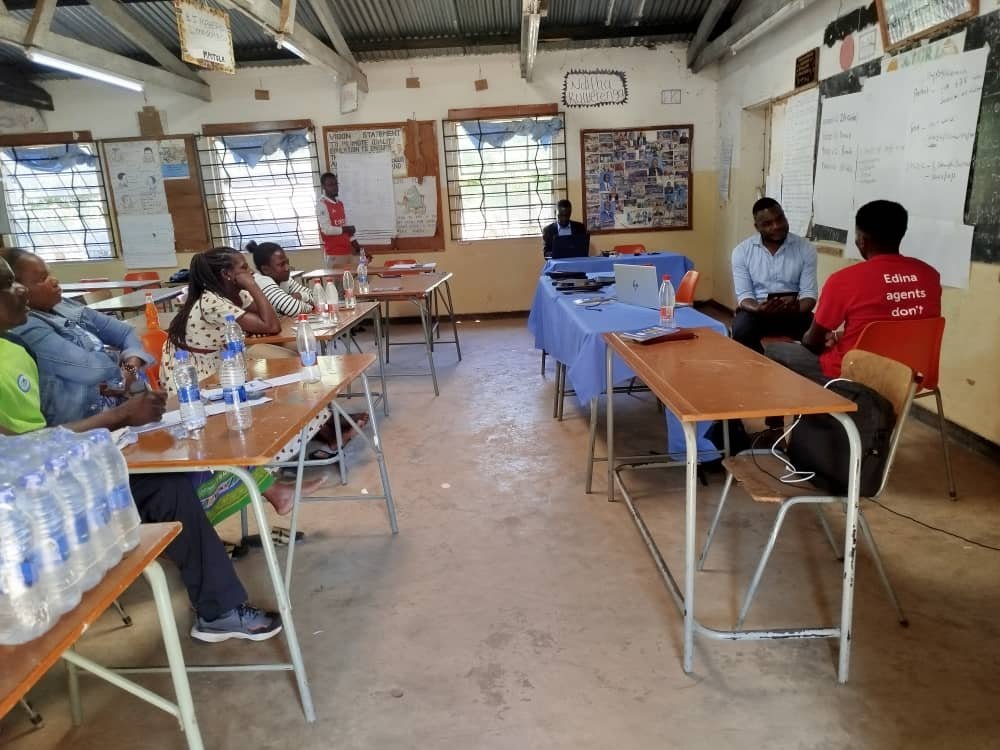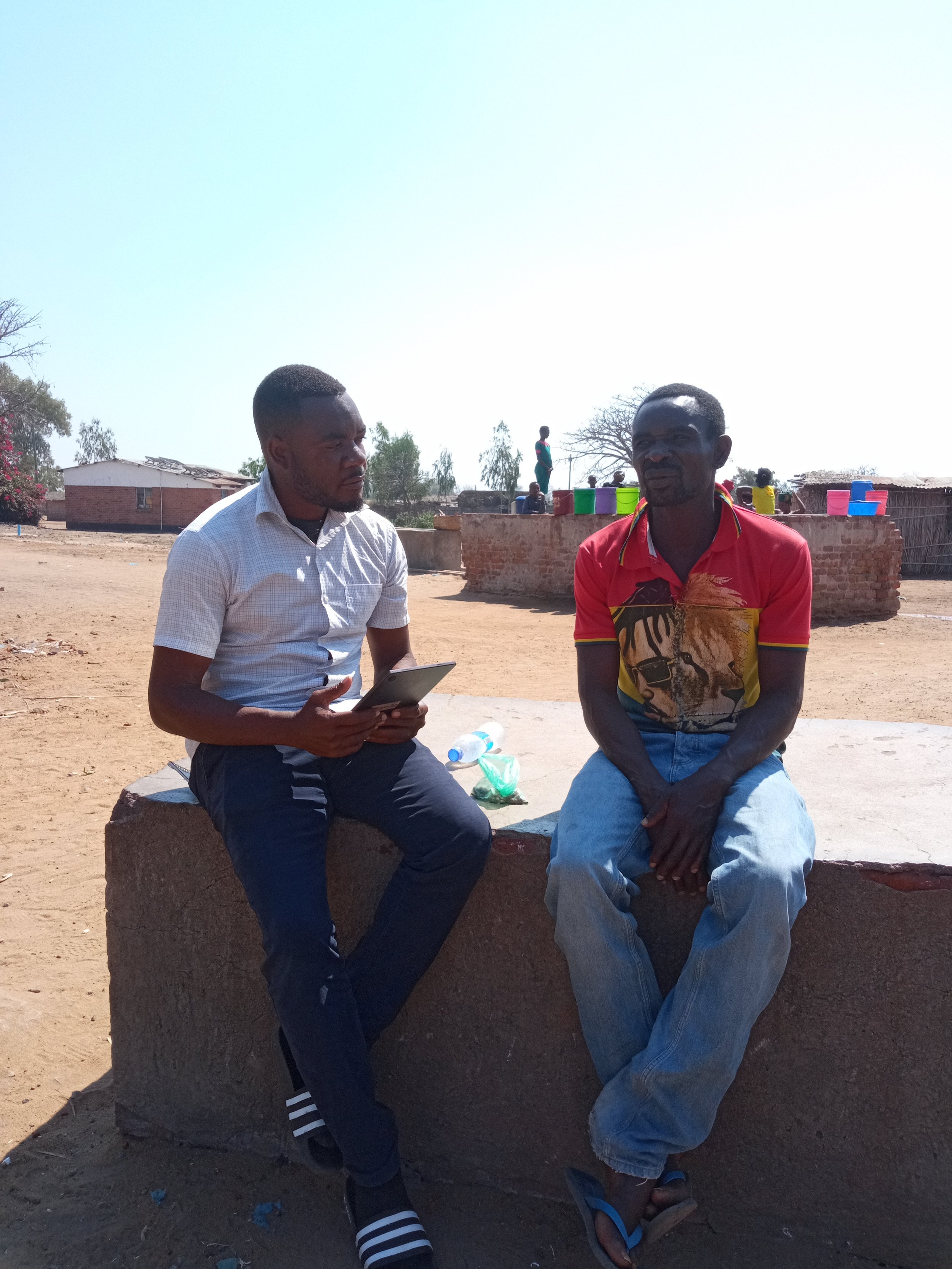Research Research Research
In 2023 we were alerted to the fact that fishing communities around Lake Chirwa were potentially a hotspot for HIV transmission and in need of support and intervention. Mbedza decided that we should respond initially through a pilot survey exploring HIV prevalence along with other related issues in two villages close to the Lake. The survey aimed to gather relevant data and provide testing and counseling services to the community.
Training in preparation for researching.
Before the survey, we conducted a training, the training phase was crucial to ensure that our team were well-equipped with the necessary skills and knowledge. We conducted the training on the 20th and 21st July 2024 and we focused on teaching participants how to approach people sensitively and professionally, understanding that the subject matter could be delicate for many. We also provided comprehensive training on using tablets for data collection, emphasizing accuracy and confidentiality.
On the 25th and 26thJuly, we set out to conduct the survey in two selected villages, close to the Lake. It was reported to us that one of the behaviours in these communities was referred to as ‘sex for fish’, a phenomenon similar to the vulnerabilities that we have observed in other areas where people are hungry and will engage in risky sexual behaviours for food.
Our team consisted of six participants, divided into two groups based on their roles. Two members, Fyson Adam and Bainatu Masambuka, were designated for HIV testing and counseling, while the remaining four focused on conducting the survey. Upon arrival in the village, we built tents to serve as temporary clinics for HIV testing and counseling. This setup provided a private and secure environment for individuals to get tested and receive counseling.
Focus Group Discussion led by Mbedza's Mr Frank Jumbe.
On the second day of the survey, we had a chance to conduct our HIV testing and counselling in one of the rooms in the near-by health center. We also had Focus Group Discussions (FGD) facillitated by Mr. Frank Jumbe.
On both days, while the counsellors were providing their service to the villagers, the research assistants approached households and individuals, explaining the purpose of our visit and seeking their consent to participate. We emphasized the confidentiality of the information collected and assured them that their participation was voluntary. Using the tablets, we recorded responses efficiently, allowing us to maintain a smooth and organized process.
Our team faced various reactions from the community. Some were eager to participate, understanding the importance of the survey for their health and the well-being of the community. Others were hesitant, requiring additional reassurance and information. Our training proved invaluable in handling these situations, allowing us to address concerns empathetically and professionally.
The two members responsible for HIV testing and counseling played a critical role in the survey. They provided pre-test counseling to individuals, explaining the procedure and the importance of knowing their HIV status. Those who agreed to get tested were given a rapid HIV test, and the results were communicated promptly. Post-test counseling was provided to all individuals, regardless of their test results. For those who tested positive, we offered additional support and information about available treatment options. The counseling sessions were crucial in helping individuals process the information and plan their next steps. On the first day we managed to test 31 people in village and on the second day we tested 39 people in village.
The pilot survey of HIV prevalence around Lake Chirwa was a significant undertaking that provided valuable insights and services to the community. Through the training and dedicated fieldwork, we were able to gather crucial data and offer support to individuals regarding their HIV status. The experience reinforced the importance of community engagement, empathy, and professionalism in conducting health-related surveys. The data collected requires some careful analysis. Early indications reveal that in one village where 39 were tested there was 1 HIV positive case but also 11 who had STI’s that required further support. We expect to be carrying out further work in this community in the future.




